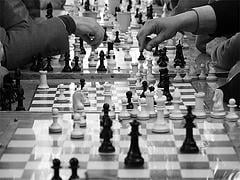Are You a Strategic Test-Taker?

Or do you want to be? Find out what SAT and ACT strategy really is, and how it's what truly helps raise your scores.
Each year, the tutoring team at Method Test Prep works with thousands of students to help them prepare for the SAT and ACT. While we do teach and review plenty of pure content, real test prep strongly emphasizes strategy. Many parents and students think they know what SAT & ACT strategy entails, but their assumptions are often incomplete or outdated. For example, it used to be important to review “guessing strategy” on the SAT, because students could lose points for providing incorrect answers to multiple choice questions. Since the 2016 revision of the SAT, however, that strategy has become obsolete: a new scoring scale means that students no longer lose points for providing incorrect answers. But even when the guessing approach was relevant, it was just the tip of the strategy iceberg.
REAL STRATEGY
Real strategy means having a deep understanding of the mechanics of the test, including how certain questions are written, the indications of common traps, and more. What do we mean? Let’s take an ACT English example question to demonstrate.
B. a container known as a “cache”, which holds certain items, can be discovered by geocachers in the area.
C. the discovery of a cache, or container holding certain items, in the area is done by geocachers.
D. geocachers in the area can discover a “cache”, or container holding certain items.
The non-strategic test-taker will read the sentences, try out each of the potential replacements for the underlined portion, and probably go with what “sounds best”. This will work occasionally, but much of the time, this will lead to second-guessing, and over many similar questions, will not appreciably increase the probability of a student answering correctly.
Strategy changes the game. The strategic student will learn that certain ACT English question types (and similar SAT Writing & Language question types) consistently feature the same answer choice structures. What do we mean? Compare all of the answer choices to one another. Do you notice that all of them are taking the same words and simply jumbling their order? Strategic test-takers will know that this means a concept known as “dangling modifiers” (or what we at Method Test Prep call “subject after the comma”) is being tested. This can happen even if the student doesn’t realize it when performing the initial read through. Now, these students can act: the sentence in such a question almost always starts by referring to a subject without identifying it. Here, the start of the sentence with the underlined portion refers to geocachers (if you’re not sure why, ask yourself who must be “using maps, a GPS, a compass, and navigation skills”). This means that geocachers must be mentioned immediately after the comma. The answer is Choice D –– no second-guessing needed.
IT REALLY WORKS
You can see that strategy is crucial: by encouraging students to look for elements that are part of a layer outside of the content itself, it helps counter students’ tendencies to default to poor habits or rely on shaky instinct.
WHAT'S NEXT?
So, are you a strategic test-taker? If not, you should become one: it’s the surest route to raising your score. If you liked the strategy here, consider using our self-paced program or joining one of our SAT or ACT courses, which will teach you loads of strategic approaches that will help you raise your scores! Also consider subscribing to our blog, where we regularly post valuable information about test prep, academics, college admissions, and more!

